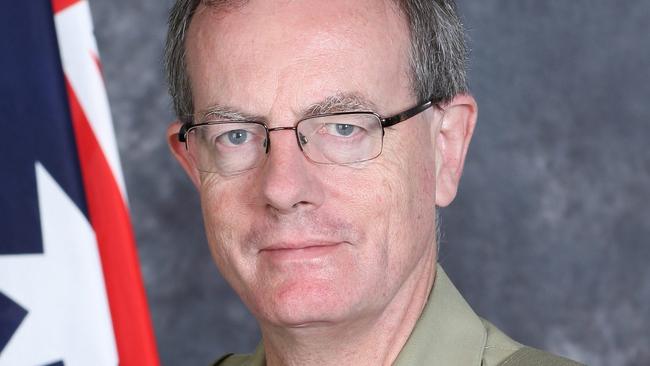Afghan probe ‘may cause trauma’, says judge
A long-running inquiry into possible Afghan War crimes appears poised to make negative findings against Australian special forces soldiers.

A long-running and secretive inquiry into possible war crimes committed during the Afghan War appears poised to make a series of negative findings against Australian special forces soldiers, with the head of the investigation acknowledging his report will be “stressful’’ for some.
Judge Paul Brereton said his inquiry team was taking steps to provide psychological support to soldiers ahead of the investigation’s findings, which are expected within months.
A letter from Major General Brereton, obtained by The Australian, has given an unprecedented insight into the workings of the Inspector-General of the Australian Defence Force Afghanistan Inquiry, now in its fourth year.
In the letter, dated April 16, Justice Brereton outlines the steps he has taken to ensure special forces soldiers, many of whom are living with deep psychological wounds as a result of their experiences, are not retraumatised by the royal commission-style process.
Justice Brereton said all witnesses were advised of their right to a lawyer, a psychologist or even a support person while being questioned. He said in one extraordinary case, a former special forces soldier now living overseas was provided with a psychiatrist after his interview.
“From the outset, the inquiry has been conscious of the potential for its proceedings to have an impact on the mental health of witnesses (and others who may be affected or involved),’’ he writes.
Justice Brereton, who is heading the probe under the auspices of the IGADF, said the prospect that his report would distress some “cannot be completely avoided’’.
“That is inevitable given the task of the inquiry, and it is probably so of any inquiry,’’ Justice Brereton said.
“However, I can confirm that before the final report is delivered, persons who are potentially the subject of any adverse finding or recommendation will be afforded procedural fairness.’’
Justice Brereton, a major general in the Army Reserve, acknowledged the “robust examination of witnesses” might force soldiers to relive traumatic experiences.
In an indication of how widespread the probe has become, he said in recent months the inquiry had expanded its support program: “In … response to the increasing number of witnesses being interviewed, the inquiry has expanded its witness support program with the appointment of additional witness liaison officers.’’
The letter implicitly addresses one of the main criticisms of the inquiry: the deep, yet hidden toll the four-year probe has taken on the mental health of its subjects.
The Defence Department has repeatedly sent its members who may be caught up in the inquiry information about mental health services. However, critics say the long-running investigation has taken a heavy toll on soldiers and caused deep fissures within the special forces community.
The Australian is aware of a number of SAS operators at the heart of the probe who have taken extended psychiatric leave.
Justice Brereton’s letter was addressed to RSL national president Major General Greg Melick, who wrote to Justice Brereton out of concern for the impact on current and former soldiers.
General Melick defended the length of time the inquiry had taken, saying while “not ideal’’ it was understandable given the expanding nature of the investigation. He said the veterans’ community was braced for bad news.
“It appears to us that there will be several negative findings as a result of this inquiry against a number of people, the extent of which we don’t know,’’ General Melick told The Australian.
“We’re particularly concerned about those who are no longer serving. The Defence Force has very robust measures in place for serving members, but a significant number are not serving and Defence may no longer have their contact details.’’


